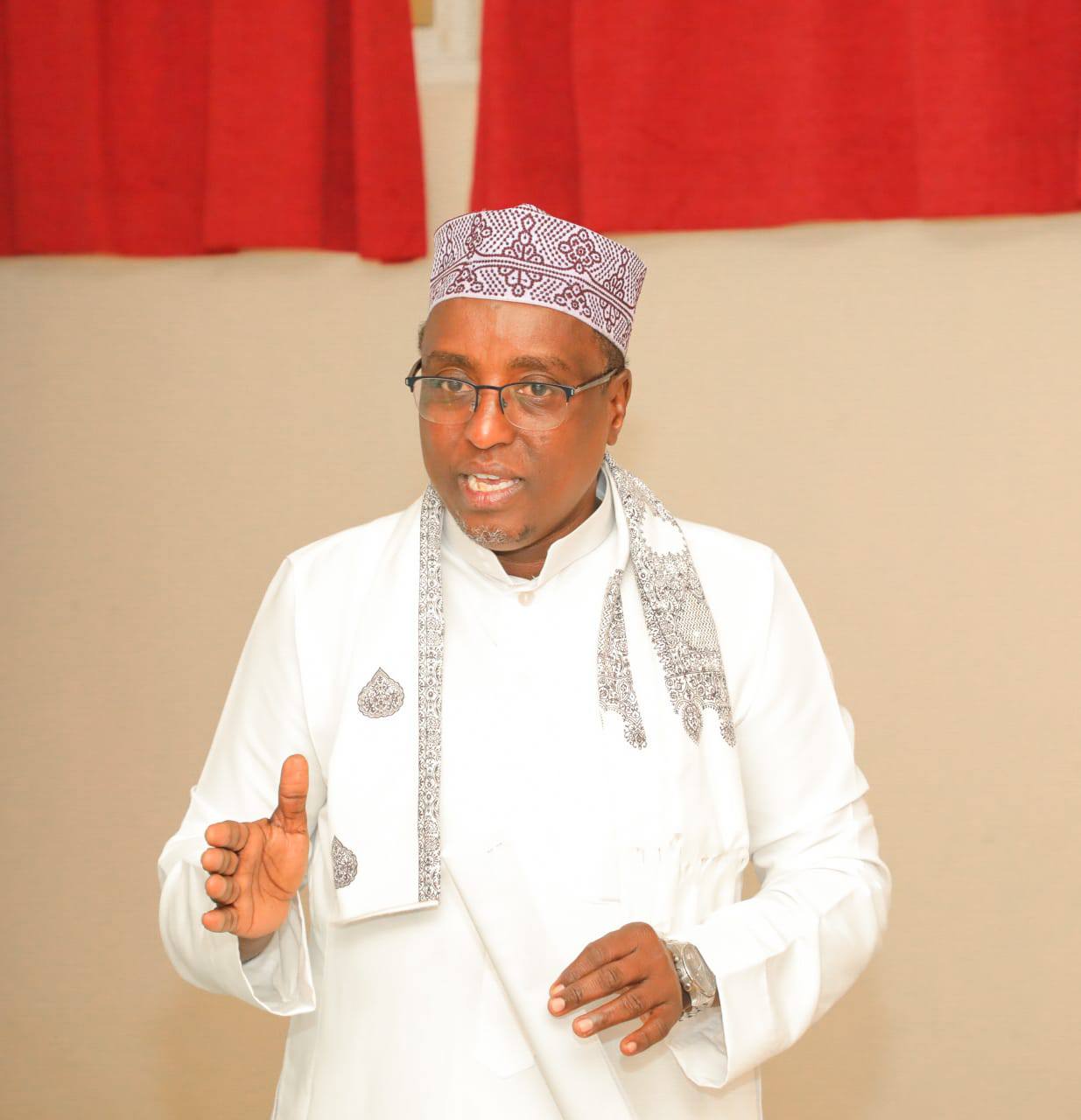
 County assembly speaker Abdi Gure in Garissa town /STEPHEN ASTARIKO
County assembly speaker Abdi Gure in Garissa town /STEPHEN ASTARIKOGarissa residents have been urged to
seize the opportunity created by President William Ruto’s directive on
identification documents and register as voters.
County assembly speaker Abdi Gure called on the Somali community in Northern Kenya to take full
advantage of the President’s Executive Order abolishing the mandatory vetting
process for Kenyan Somalis seeking national IDs.
On February 4, while on a working
tour in Wajir, President Ruto signed a decree scrapping the vetting requirement
that had long hindered residents of Northeastern from obtaining IDs.
Speaking at a community forum in
Garissa town, Gure hailed the move as a “historic milestone” that ends decades
of systemic discrimination in accessing crucial documents such as IDs and
passports.
“For far too long, our people
endured humiliation, endless delays, and outright discrimination when applying
for IDs. The vetting process treated Kenyan Somalis as suspects in their own
country. With the President’s directive, those barriers are gone. We must act
quickly and ensure every eligible Somali registers for an ID without delay,” he
said.
Gure also urged residents to
register as voters in large numbers once they secure their IDs, stressing that
political participation is key to representation and fair resource allocation.
The Independent Electoral and
Boundaries Commission has announced the resumption of Continuous Voter
Registration beginning Monday, September 29, 2025, nationwide.
“From September 29, let us turn out
in large numbers, register as voters, and make our voices count in shaping the
future of our counties and Kenya at large,” Gure said.
For decades, Kenyan Somalis faced
hurdles in acquiring IDs due to vetting committees composed of security
officers and local administrators. The process, often marred by bias,
corruption, and arbitrary rejections, forced applicants to produce lineage
documents, affidavits, or elders as witnesses.
Thousands of young people were left
in limbo, unable to access education, jobs, banking services, or travel
opportunities.
“In the past, many of our youth lost
chances to join universities, jobs, and even government programmes because they
lacked an ID,” the speaker said.
In addition to scrapping vetting,
President Ruto recently reopened the regional passport office in Garissa. Gure
described the move as a game-changer, saying it would save residents the
expense and hardship of traveling to Nairobi or Mombasa to obtain passports.
“This is not just about documents.
It is about restoring dignity and giving our people equal opportunities. With a
passport office in Garissa, our community will save time, money, and
unnecessary hardship,” he said.
Gure called on local leaders, civil
society groups, youth organisations, and religious institutions to launch
awareness campaigns encouraging residents to register for IDs and voter cards.
The continuous voter registration
drive is expected to give citizens ample time to prepare ahead of the 2027 general election.
President Ruto’s abolition of the vetting process for Kenyan Somalis seeking IDs marks a turning point in addressing decades of systemic exclusion in Northern Kenya. For many, the policy not only restores dignity but also unlocks access to education, employment, financial services, and political participation. Speaker Abdi Idle Gure’s call for mass registration highlights the urgency of converting this policy gain into tangible empowerment through voter registration. However, the real test lies in swift implementation, ensuring bureaucratic hurdles do not re-emerge. If effectively rolled out, the move could reshape the political and economic landscape of Garissa and the wider region.











